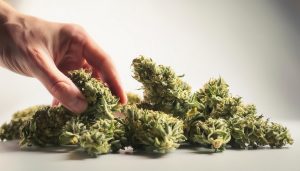
With growing interest in the therapeutic potential of tetrahydrocannabinolic acid (THC-A), many are seeking guidance on safe and effective dosing. However, definitive THC-A dosage guidelines remain elusive due to limited clinical research. While human studies are still lacking, preliminary research along with anecdotal wisdom can help provide some initial direction for navigating dosage with this intriguing cannabinoid.
Guiding principles for dosing
In the absence of definitive dosage guidelines, applying these basic principles helps navigate dosage starting points:
- Start low – The adage “start low, go slow” is always wise when experimenting with new cannabinoids without human toxicity data.
- Increase gradually – Increase dosage slowly while closely monitoring effects and side effects at each increment.
- Consider formulation – Account for differences in bioavailability based on product format – a 10 mg dose of THC-A oil may be very different from 10 mg in a tea.
- Track effects – Keeping a journal of the effects felt at each dose helps optimize the dosage dialed in.
- Consult experts – Seek guidance from experienced healthcare practitioners familiar with cannabinoid medicine and therapeutic use.
- Stay vigilant – Carefully watch for reactions like sedation, coordination issues, anxiety, or any concerning effects that may signal exceeding your optimal dose.
With these basic guidelines in mind, available sources help provide an initial estimate of where to start experimenting.
Insights from preclinical research
Most knowledge of THC-A dosing stems from preclinical animal research. However, translating these findings to human dosing requires some major extrapolation. Some key takeaways:
- Rodent studies often use doses of 10-100 mg/kg with positive effects.
- Assuming an average human weight of 60 kg, this would equate to 600 – 6000 mg THC-A.
- However, rodent metabolism differs greatly from humans regarding cannabinoids.
- Human equivalent doses derived from animal studies are considered very rough estimates at best.
While tentative, these preclinical insights provide a ballpark figure to use as a starting point. Given the lack of safety data, most experts advise initiating THC-A doses much lower and titrating upwards slowly under medical guidance.
Emerging products and dosing information
A few cookies thca products are entering the market with some initial dosage suggestions:
- Dry herb THC-A crystalline – 5-15 mg
- THC-A tinctures – 2.5-5 mg per dose
- THC-A gel caps – 10-25 mg each
- THC-A transdermal patches – 10-40 mg over 8-12 hours
While minimal, quantitated products like these help provide reference points grounded in actual consumer use.
Anecdotal wisdom on dosage
In the absence of controlled clinical data, anecdotal wisdom from patients and providers offers another perspective. Some general observations:
- Total daily doses below 30 mg are considered mild by most reports.
- Doses of 30-50 mg daily are common for moderate therapeutic effects.
- Doses approaching 100 mg daily are not uncommon but require more caution.
- High doses above 100 mg should be approached carefully and ideally monitored by a doctor.
These experiential reports provide a rough framework for gauging dosage based on the desired intensity of effects. However, individual variation can be substantial so clinical guidance is still recommended.

